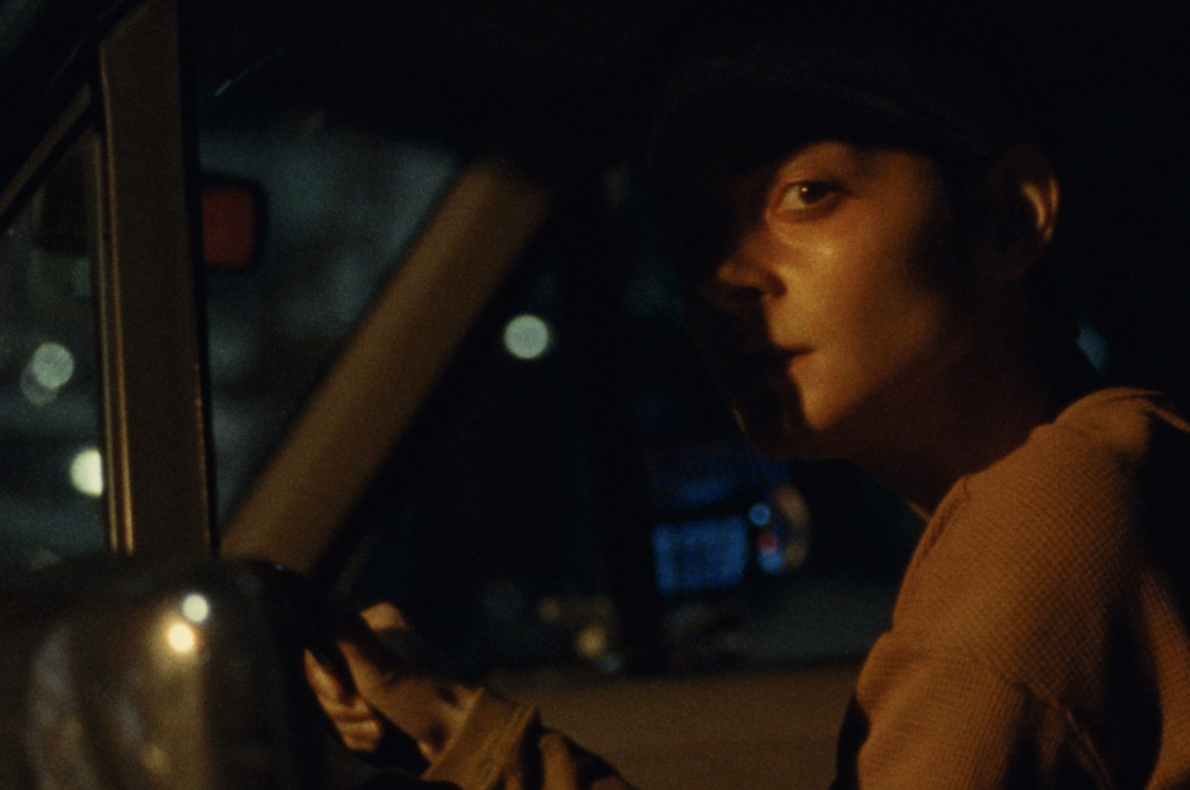‘Gazer’ Review: A Mother’s Dyschronometria Hides Her Own Ticking Clocks in a Brilliantly Paranoid Debut


Imagine if “Baby Driver” was a tragic, music-free exploration of mental decay, and you might be able to start picturing the tensest robbery sequence in “Gazer.” Just like Ansel Elgort’s tinnitus-inflicted getaway driver, Frankie (Ariella Mastroianni) needs to put her headphones in before she tackles a dangerous job. But she’s not blasting Queen or The Jon Spencer Blues Explosion.
The struggling single mother suffers from dyschronometria, a deteriorating mental condition that leaves her unable to accurately perceive the passage of time. Seconds and minutes seamlessly turn into hours and days in a way that leaves her constantly questioning when she is. It’s a workable, if inconvenient, situation when your biggest fear is missing a doctor’s appointment or zoning out at work. But when you have a matter of minutes to steal car keys from a dangerous man’s apartment before he comes home, the risks become considerably greater. So she pre-records second-by-second instructions for herself with the hope that she can keep herself in the moment by listening to her own pleas. But when the doorknob turns and she’s forced to hide under the bed, her choreographed plans crumble and she has to plan her escape without a net — or an internal clock.
More from IndieWire
Marrying the manic paranoia of “After Hours” with a “Memento”-esque unreliable protagonist and touches of flesh-bending body horror that could be ripped straight from “Videodrome,” “Gazer” is the kind of debut that should restore your lost faith in independent cinema. Self-financed by rookie director Ryan J. Sloan and shot in between shifts at his day job as an electrician, the 16mm thriller is a white-knuckler that feels consistently fresh despite wearing many of its classic Hollywood influences on its sleeve. Sloan invokes ’70s sleaze and the “By god, this goes all the way to the top!” conspiracies of classic noir in equal measure, but his film stays so grounded in its own world that it never devolves into an homage to anything in particular. “Gazer” might be inspired by New Hollywood, but its existence is almost reason to believe that a similar filmmaking renaissance could be on the horizon.
Frankie might not understand time in the conventional sense, but she’s certainly aware that her clock is ticking. Her young daughter is being raised by her late partner’s mother, who never lets Frankie visit after the state deemed her an unqualified parent due to her inability to complete daily tasks. She can tell that the girl is growing up in a home that’s negligent at best and potentially much worse, and her window to make any memories with her daughter is rapidly closing. Doctors warn her that her impaired mental state will only get worse, and it won’t be long before she’s incapable of living on her own. She’s desperate to stock away a little money for her daughter’s future before she’s too incapacitated to advocate for the girl’s safety. But that’s hard to do when even the most menial jobs fire you for poor time management.
The situation seems bleak, but Frankie finds a lifeline in an unexpected place when a woman calling herself Paige (Renee Gagner) approaches her at a trauma support group. Paige recognizes Frankie’s face because she saw her gazing through a window while her boyfriend assaulted her. The woman explains that she’s struggling to leave an abusive relationship and doesn’t have a friend to turn to. She has an escape plan, but she needs someone her neighbors won’t recognize to sneak into her apartment, grab her car keys, and stash her car in a safe spot. She offers Frankie thousands of dollars for one night’s work — and Frankie isn’t in the position to turn down anyone who offers to pay her.
It seems like the perfect heist on paper, just two strangers using each other’s tragic situations to bring themselves a step closer to freedom. But things get complicated after Frankie does exactly as she’s told. Paige ghosts her without paying her fee, but that becomes the least of her problems once cops show up at her door. Paige never picked up her car, but the authorities did — and as it turns out, there was a dead body in the trunk. With Frankie’s fingerprints all over the steering wheel, she’s now the prime suspect in a murder case she knows nothing about.
Mastroianni, who co-wrote the script with Sloan, carries the film with her paranoid performance as Frankie. Sporting a choppy pixie cut and drab clothes, she blends into the grey New Jersey scenery as she sidles through seedy motels and run-down houses with the hopes of clearing her name and getting her daughter back. As her mental faculties slip away, her hallucinations immerse her in a world that begins to look less and less like the one she actually lives in. But no matter how twisted her perception of the world becomes, her earthly desire to get her daughter back and clear her name grounds her just enough to keep pushing forward. Unreliable yet deeply relatable, she’s a quintessential thriller protagonist whose unique mind might be the only thing capable of untangling the strange web she finds herself in.
Frankie might not have much time left after the credits of “Gazer” roll, but there’s every reason to believe that cinephiles will be enjoying the work of Sloan and Mastroianni for years to come.
Grade: A-
“Gazer” premiered at the 2024 Cannes Film Festival. It is currently seeking U.S. distribution.
Best of IndieWire
Sign up for Indiewire's Newsletter. For the latest news, follow us on Facebook, Twitter, and Instagram.

